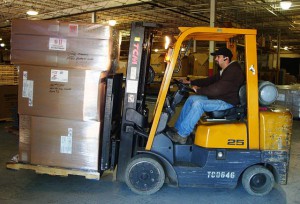 When Walmart announced their Sustainability Index earlier this year, a program with the potential to alter the landscape of the manufacturing and retail industries worldwide, president and CEO Mike Duke had the following words to say:
When Walmart announced their Sustainability Index earlier this year, a program with the potential to alter the landscape of the manufacturing and retail industries worldwide, president and CEO Mike Duke had the following words to say:
“Customers want products that are more efficient, that last longer and perform better… And increasingly they want information about the entire lifecycle of a product so they can feel good about buying it. They want to know that the materials in the product are safe, that it was made well and that it was produced in a responsible way… We do not see this as a trend that will fade. Higher customer expectations are a permanent part of the future.”
As suggested by Mike Duke’s statement, Walmart is taking its commitment to global sustainability to a new level. It’s fair to assume that, all altruism aside, it’s a decision based on plenty of market analysis and rooted in economics. However, when the world’s largest retail company makes a dramatic shift in the products they offer and the way they’re labeled, it’s worthy of paying attention, no matter what type of business you’re in.
With the Sustainability Index, Walmart aims to investigate the energy and resources consumed in producing the products it sells, as well as the components of all those products. The implications of this plan could have major implications for the way companies make products and the way consumers select products to purchase.
The Sustainability Index at a Glance
Walmart is rolling out this initiative in several phases. First, it will survey all of its suppliers around the world to gather information about how their products are made. The survey focuses on four areas: energy and climate; material efficiency; natural resources; and people and community.
Next, Walmart is laying the groundwork for the creation and operation of the Sustainability Index Consortium, which will work on compiling information across various industries and products to measure sustainability. Finally, just as the FDA requires food products to carry detailed labels so that consumers can determine how the food they consume will impact their health, Walmart will soon require product labels to inform customers about their products’ environmental impact. The ultimate goal is to create transparency for consumers with regard to the sustainability of every single product on Walmart’s shelves.
Creating Competition Among Suppliers
An intended byproduct of this goal of transparency is that consumers will start making purchasing decisions based, at least in part, on the product’s sustainability label and, in turn, suppliers will take notice. If all goes as planned, manufacturers will be forced to respond to consumer demand for better products that have minimal impact on the environment. The process will ideally lead to a market where manufacturers have to compete with one another by making more responsible decisions about product sustainability.
Combatting Greenwashing
Walmart’s plan should also play a role in wiping out corporate greenwashing. Today, more than ever, companies are marketing products in a way to entice environmentally-conscious consumers. However, without strict controls in place, research suggests that, for many products, there’s little truth to claims that they are “eco-friendly,” “natural,” or “green.” With Walmart’s new labeling system, you won’t have to be a savvy environmentalist to identify this brand of corporate dishonesty. Presumably, companies will react to the Sustainability Index by adopting more honest marketing strategies.
Creating a Global Trend
Walmart’s influence is undeniable, so the unveiling of this new program has enormous potential to have far-reaching impact around the globe. It won’t happen overnight, but with time, we should expect to see companies adopting more responsible practices regarding manufacturing, packaging, processing, and transporting products. That’s a trend we can all support.
Brent Hardy oversees all corporate construction & facilities management activities for Extra Space Storage and leads corporate sustainability programs, implementing solar power, energy efficiencies and more. He writes about corporate sustainable practices at blog.extraspace.com/category/sustainability.




